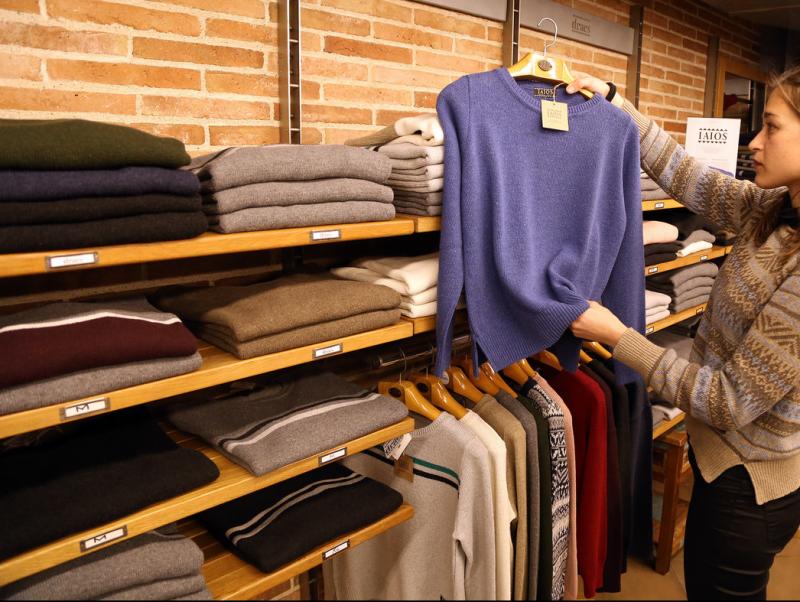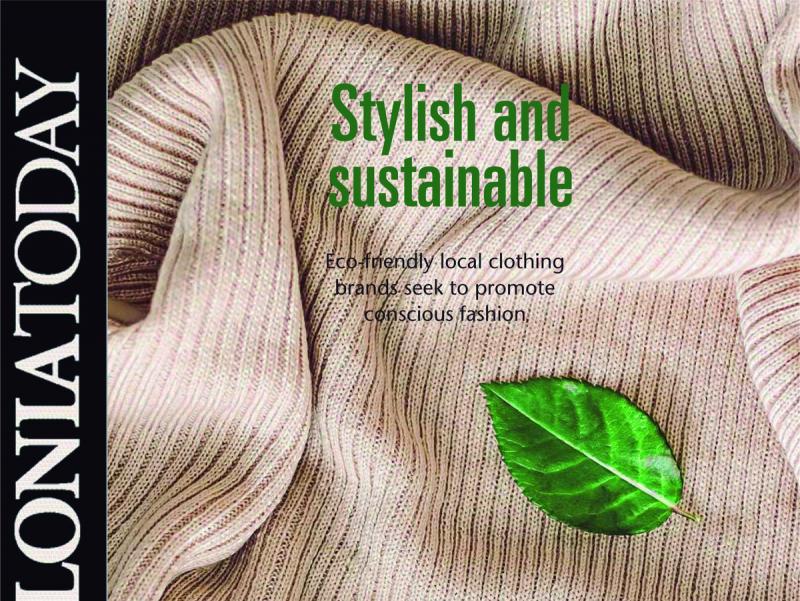Is consuming a political act?
Yes. Today multinationals have a lot of power, but so does the public, because with every small decision we make we can show what kind of world and society we want.
So consumers have more power than we think?
The main culprits are the multinationals and their systematic violation of rights. We can do things individually but we will have real power if we come together and act collectively. Grouping together, becoming volunteers, activists... It’s not just about a single thing: we won’t change the world by recycling alone, the important thing is the sum of many small actions. Believing that we can’t do anything about the situation merely maintains the status quo. But every little decision we make can have an impact. The impact can be local, but we’re very interested in the global.
In what sense?
Everything adds up. During the Covid lockdown, the sales of clothes went down because people did not go out so much and so the multinationals decided not to pay for the items they had already ordered for their new seasons. Thousands of people in countries in the south were left without wages, which were already very modest, and despite them having done the work. The health crisis has made these major violations of rights and how little people matter to the big multinationals more evident than ever.
What are transformative economies?
They are economies that put the focus on people. This is where fair trade comes in but not just that, also the social and solidarity economy and ethical finance. We try to show people that there are a lot of options. Every day we receive a thousand negative inputs but we’re convinced that knowing there are alternatives is very empowering.
There’s a lot of talk in sustainable fashion about local suppliers and manufacturing. Is textile fair trade sustainable?
When we talk about the carbon dioxide that is generated from transporting an item of clothing by ship, for example, we also have to take into account that since clothes take up little space and weigh little, their impact is relatively small. Fair trade is sustainable because the big problem in the production chain is that there are a lot of environmental impacts at different stages of the process, such as the use of cotton, dyes for clothes... Fair trade is a sustainable clothing alternative because, among many other things, it certifies that it has not been made with slave or child labour, that no pesticides were used, and that it wasn’t mass produced and was made in cooperatives rather than in huge factories.
Is consuming less but better quality the key?
Totally, that’s why even though we defend fair trade, it’s essential that we lower the level of consumption. That’s why we talk about reuse, second-hand clothes, flea markets... In fact, in the case of textiles, we’re not talking about fashion, but clothes, because fashion already implies seasonal changes and the latest trends. Before anything else, clothing should simply be a basic good that allows us to dress ourselves.
Is price a barrier?
We must try not to blame people. It’s clear that not everyone can afford five sweaters for 70 euros each. But that’s not what we’re saying; we’re inviting you to rethink your consumption habits. That’s why we put the stress on such things as reusing, recycling, going to flea markets... In addition, when we buy, we have to be clear about how much clothing we need, how many uses we will get out of it and how long it will last. The model of non-stop buying and choosing single-use clothes is not sustainable because a garbage truckload of textile waste is burned every second. And on top of that, the fast fashion model has now given way to ultrafast fashion, with Chinese multinationals like Shein launching so many seasons that you can’t keep track.
The European Union has said that it wants to introduce legislation so as to put an end to single-use clothes, and yet it allows the proliferation of brands like Shein. Is that hypocrisy?
Multinationals have a lot of power because it’s an industry that moves trillions. At the European and national level, efforts are being made to require companies to identify their risks of rights violations and remedy them, but it’s complicated. In Catalonia, we have the public procurement law of 2018. It introduces the possibility of setting ethical criteria in public procurement, but in practice there’s a lot of reluctance. We believe that fair trade is a guaranteed category that is gradually being incorporated. For example, Barcelona’s Parks and Gardens department has adopted this so that the textile used for its uniforms will come from fair trade. It is a first step but there are other countries that are more advanced.
Who are they?
The UK has the Modern Slavery Act, which requires companies to reveal the steps in their production chain to ensure that at no stage is labour exploited. France also has an interesting law of this type, but here it’s not coming easily.
We’re late to the party.
It’s like the issue of plastic. We’ve known for many years that it’s bad and it took a very long time to ban it, but there are still those who don’t comply with the regulations. I think that progress must be made in the legislative field because laws are important, but so are consumers. We must stop buying t-shirts for two euros because we know it’s not sustainable and that they are made with slave labour.
Are the alternatives well enough known?
There are many more options nowadays. For example, there are initiatives like the ’Pam a pam’ map by the Solidarity Economy Network, the XES. The map helps you to see companies or organisations in the social and solidarity economy. More and more initiatives of this type are under way. In textiles, we’re trying to make a generic map, not so much with specific companies, but with alternative concepts of consumption, such as sharing clothes with friends. The vision will be holistic and, for example, we will stress the idea of the local neighbourhood, where there might be businesses like tailors or seamstresses that have always been there. We forgot about them but that is also sustainable clothing.
What other campaigns do you have going?
Last year we did ’Les vides que vestim’ (The Lives We Dress) in which we tried to show the violations in the different stages of production of an item of clothing and we also highlighted the alternatives. We’re now collaborating with the ‘Roba de qualitat, salari just’ (Quality Clothes, Fair Pay) campaign. The goal is to collect a million signatures demanding the European Union to make a law that guarantees decent wages throughout the production chain.
Do awareness campaigns work?
One of the first was 40 years ago against Nike and it had an impact. I would also highlight Greenpeace’s campaign against chemicals in dyeing processes. H&M and Decathlon have had to pay 900,000 euros in the Netherlands and will not be able to use the word sustainable because what their labels said was not true. It all adds up.
interview Business




